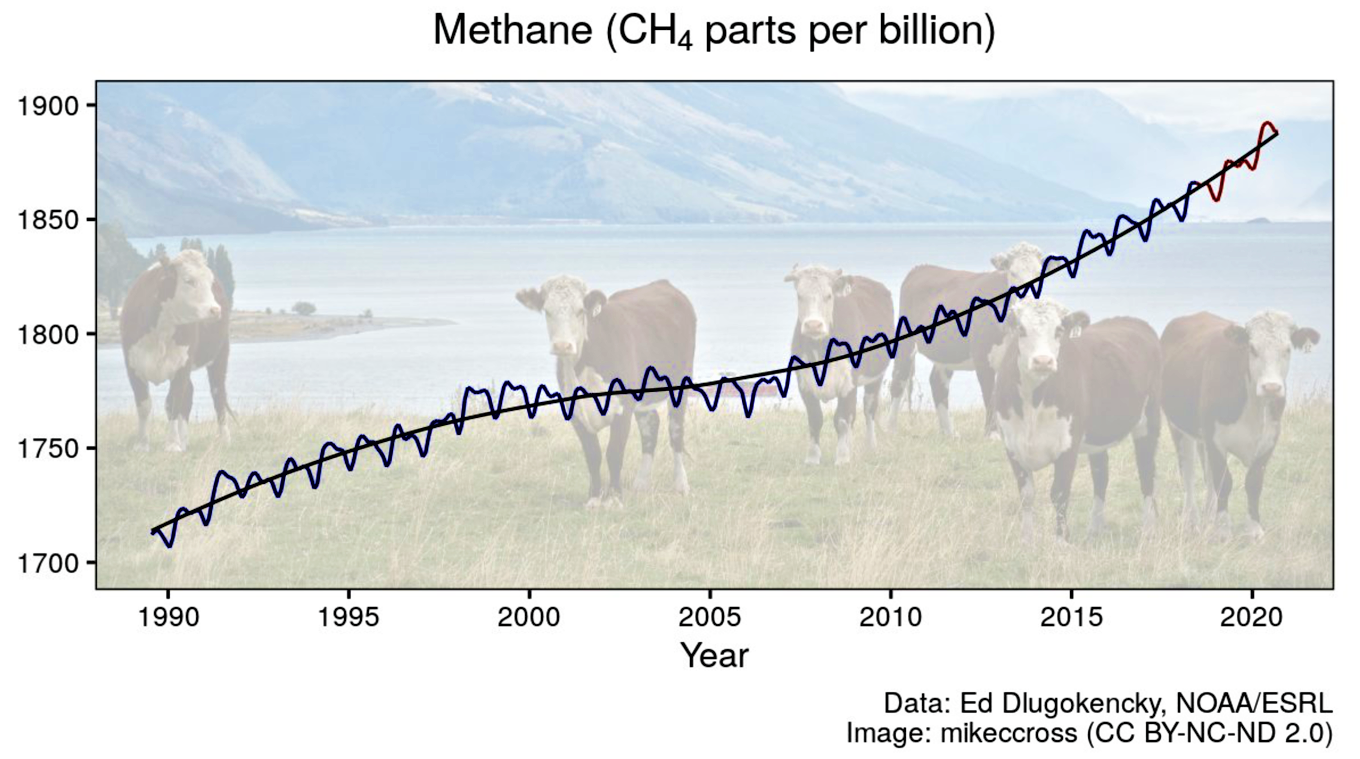The recent Sixth Assessment Report from the UN IPCC says cutting emissions of methane – one of the most powerful greenhouse gases (GHG) — is crucial if we are to slow down climate change. This is yet another call from climate scientists that reducing methane emissions can provide a quick win in the battle to reduce GHG emissions by 2030.
Why methane? Methane is 84x more powerful in trapping heat than CO2 over a 20-year period and it has caused about 30% of global heating to-date. Also, it dissipates in the atmosphere within 10-12 years, unlike CO2 which remains in the air for centuries.
2020 saw a record rise in methane emissions. Source: Bioscience
Where does methane come from? According to the UN, agriculture is the number one source at 42%, 80% of which comes from the digestive systems of cows and sheep, their manure, and fertilizer to grow feed crops. The number two source is fossil fuels at 36%, especially shale gas wells and leaks in conventional oil and gas facilities, and number three is waste dumps at 18%.
Source: FAOSTAT data. Chart: Amada44 (CC BY 3.0)
There are over four billion ruminant livestock globally (an increase of one billion in the last 20 years), and they require more resources and land than any other source of food.
Another recent study from climate scientists focused on methane reduction in three of its six urgent calls to action. These were: cutting air pollution by significantly reducing methane; transforming food systems by switching to mostly plant-based diets; and reducing food waste. The study also called for a significant global carbon price to cover all GHGs in multiple sectors, including forestry and agriculture/food.
However, vested interests are prevaricating. Strategies to reduce methane being promoted by Big Food — such as seaweed additives in cattle feed — are not scalable or feasible for four billion ruminants. Nor will they deliver the emissions reductions and climate benefits of a significant reduction in meat consumption and an increase in plant-rich diets.
“Cutting methane is the strongest lever we have to slow climate change over the next 25 years and complements necessary efforts to reduce carbon dioxide. We need international cooperation to urgently reduce methane emissions as much as possible this decade,” said Inger Andersen, Executive Director, UN Environment Programme.




